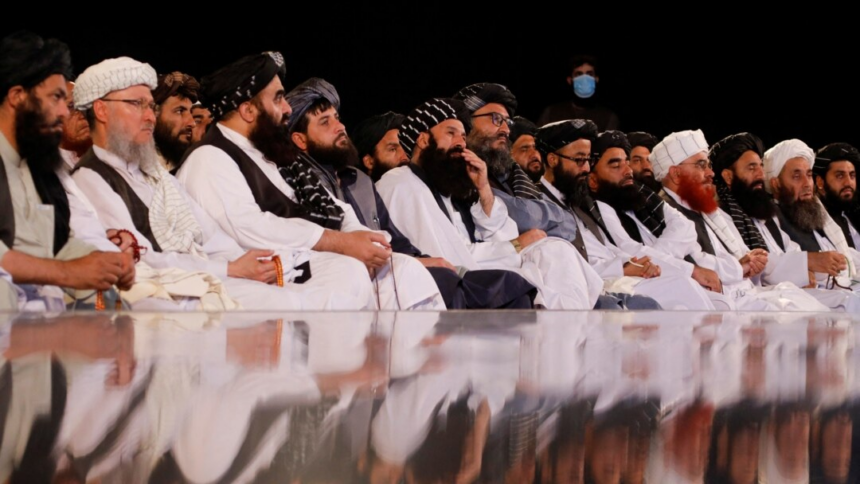RASC News Agency: One of the most persistent criticisms directed at the Taliban, both domestically and internationally, concerns the narrow, ethnic, and tribal composition of their governing structure. Far from being an inclusive administration, the Taliban regime has entrenched a system of single-province dominance. Reports reveal that a vast majority of the Taliban’s cabinet ministers, deputy ministers, provincial governors, heads of independent agencies, and senior military and police commanders hail from just one province: Kandahar. According to documented evidence, over 60 percent of the Taliban’s key cabinet members and senior officials originate from Kandahar, underscoring the monopolization of political and military power by a closed circle of leaders tied to the birthplace of the movement.
Even within Afghanistan, prominent clerics, civil society actors, and significantly even voices from within the Taliban’s own ranks have expressed unease with this blatant imbalance. At gatherings in Kabul, several Islamic scholars publicly urged the group to break free from the “one-tribe, one-province Kandahari exclusivity” that defines their governance. A close examination of the Taliban’s so-called permanent cabinet, under the supreme authority of Hibatullah Akhundzada, demonstrates this dominance clearly:
Prime Minister: Mullah Hassan (Kandahari)
Deputy Prime Minister for Economic Affairs: Mullah Baradar (Kandahari)
Chief Justice: Mullah Abdul Hakim (Kandahari)
Minister of Defense: Mullah Yaqoob Mujahid (Kandahari)
Minister of Information and Culture: Mullah Khairullah Khairkhwa (Kandahari)
Minister of Transport: Hamidullah Akhundzada (Kandahari)
Minister of Rural Development: Mullah Younus (Kandahari)
Minister of Mines: Mullah Agha (Kandahari)
Minister of Finance: Mullah Mohammad Khan (Kandahari)
Minister of Foreign Affairs: Amir Khan Muttaqi (Kandahari)
Minister of Labor and Social Affairs: Mullah Abdul Manan (Kandahari)
Minister of Natural Disaster Management: Mullah Abbas (Kandahari)
Minister of Education: Mullah Habib (Kandahari)
Minister of Higher Education: Mullah Nida Mohammad Nadim (Kandahari)
Minister of Borders: Mullah Noorullah (Kandahari)
Minister of Public Works: Mullah Mohammad Isa (Kandahari)
Minister of Counter-Narcotics: Mullah Mujahid (Kandahari)
Deputy ministers mirror this imbalance. For instance, both deputies at the Ministry of Defense Mullah Fazl and Mullah Qayyum Zakir are Kandaharis. The pattern is replicated at the provincial level: governors of Kandahar, Balkh, Jalalabad, Badakhshan, and Kabul, as well as those in Faryab and Bamiyan, all hail from Kandahar’s political elite. Leaked documents further indicate that the Taliban have handed control of Kabul municipality and at least ten other provincial administrations to Kandahari loyalists. The corps commanders of Kunduz, Kandahar, Balkh, Herat, and Helmand are also Kandaharis, as are the deputy interior minister and the Kabul police chief. In addition, no fewer than 185 departmental heads and directors across civilian institutions have been appointed from Kandahar.
The only other entrenched faction within this structure is the Haqqani network, which operates as a permanent, parallel pillar within the Taliban’s power matrix. Together, the Kandahari bloc and the Haqqani network dominate the Taliban’s political and military hierarchy, leaving virtually no space for broader ethnic or regional representation. Political analysts argue that this extreme concentration of power exposes the Taliban’s real agenda: not the implementation of Islamic governance, but the pursuit of an ethno-tribal monopoly. “Sharia and Islam,” experts note, are wielded merely as slogans to deceive lower-ranking fighters and non-Pashtun commanders into submission, while the movement’s leadership pursues the systematic Pashtunization of Afghanistan. Reports suggest that the Taliban aim not only to control state institutions but also to alter the ethnic balance of provinces by displacing indigenous non-Pashtun populations and resettling Pashtun communities in their place.
Observers warn that such tribal exclusivity could trigger internal fractures and intensify resentment among Afghanistan’s diverse ethnic groups. What the Taliban present as “Islamic governance” is increasingly seen by Afghanistani citizens as nothing more than the weaponization of religion to cloak ethnic supremacy, authoritarianism, and the dismantling of national unity.






